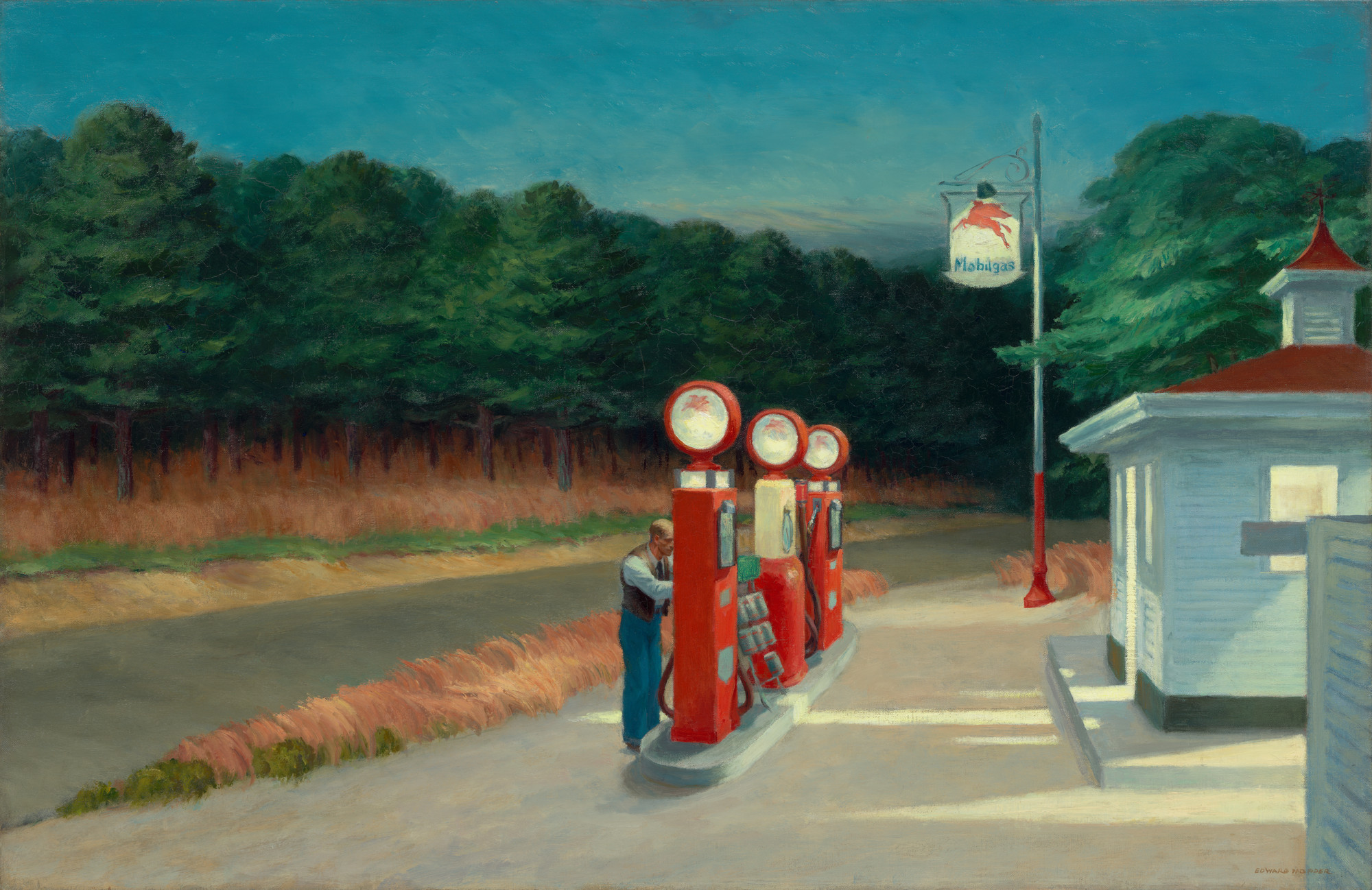The bulk of the post below was written several months ago and has been in draft form since. I had hesitated to publish it because the topic had been thoroughly explored in my lengthy 2023 post The Danger Within. However, I came across recent remarks by Jonathan Greenblatt, CEO of the Anti-Defamation League (ADL), which prompted me to update and publish this post.
Greenblatt appeared on CNBC to talk about a recent study funded by the ADL. The study involved submitting resumes for white collar jobs from candidates with European names, Jewish names, and Israeli names, finding that those with Jewish and Israeli names needed to submit substantially more resumes before getting interviews. I've not read the studies so can't comment on the methodology which is critical to determining the legitmacy of the results, but I was interested in Greenblatt's comments on DEI. One of the interviewers makes several remarks about the problems with DEI. Greenblatt responds:
"DEI industrial complex which excludes, rather than includes, Jews, it magnifies the problem."
"It's hard for me to make sense of a program trying to create more diverse environments when we see it is diminishing that".
Is the ADL's embrace of DEI, described below, weakening? It's hard to tell, but I think Greenbaltt is still hoping to have DEI embrace, rather than reject Jews. Looking at the ADL website I can't find anything about DEI, but the organization is full on in support of social justice and of all the other causes now falling under the rubric of DEI. It looks like it can't face directly into the nature of the problem.
However, maybe there is something going on below the surface with the ADL and other American Jewish organizations. There certainly needs to be. As pointed out in my previous post on this, DEI is simply incompatible with Jews being included. To do so would undermine the very logic and rationale for DEI which is based on the oppressor versus oppressed framework. You cannot include the most disproportionately successful group in America within DEI. It would make a mockery of the ideology.
In the news right now is a story about the University of Michigan firing its Director of the Office of Academic Multicultural Initiatives for allegedly saying that the university is "controlled by wealthy Jews" and that Jewish students are "wealthy and privileged" and so do not need diversity services. She's actually correct, according to DEI doctrine. That's the reality that needs to be faced in to and why DEI is such a corrupt, divisive, and racist way of thinking. It is a repudiation of the tenets of the Civil Rights Movement, a denial of our common humanity, while embracing a reactionary view of tolerance.
In a piece earlier this year, The Real Rupture in American Jewish Life, Ben Koan best summarized the situation for American Jews,
As Franklin Foer writes in The Atlantic,
the real rupture is between traditional Jewish-American liberalism and
an antisemitism-ridden, illiberal left. According to Foer, “The
intersectional left self-consciously rebelled against the liberalism
that had animated so much of institutional Judaism, which fought to
install civil liberties and civil rights enforced by a disinterested
state.” Instead, the new left “considered the idea of neutrality—whether
objectivity in journalism or color blindness in the courts—as a guise
for white supremacy,” with Jews “treated in sectors of the left as the
epitome of whiteness.”
While the old Jewish-American liberalism espoused cultural pluralism, for the left influenced by Ibram Kendi’s How to Be an Antiracist and Frantz Fanon’s The Wretched of the Earth,
there are only racists and antiracists, colonizers and colonized,
oppressors and oppressed. In this Manichean, literally black-and-white
worldview, Israel is wholly in the wrong and the October 7 attacks are
to be justified or even celebrated. Liberal Zionists are, at best, the
equivalent of whites who refuse to see their privilege and thus
contribute to structural racism. At worst, they are de facto oppressors
and legitimate targets of ostracism or violence themselves.
Accordingly, the choice for most American Jews is not whether to
adhere to liberal principles or to support the existence of Israel; it’s
whether to fight for traditional liberal principles on the left or to
abandon the left entirely.
Here's what I wrote a few months ago:
Those Jewish organizations who had been collaborating with the DEI
crowd seem to have decided to maintain that course of action. In an interview with the Jewish Insider, ADL CEO Jonathan Greenblatt once again tells us he sees nothing wrong with DEI, other than that Jews are not included:
We’re going to judge these institutions based on not what they say but
what they do. And so whether it’s how they update and expand their DEI
programming, whether it’s how they apply consequences to student
organizations like Jewish Voice for Peace or Students for Justice in
Palestine, that seriously violate their codes of conduct and target and
intimidate and threaten Jewish students, whether it’s ensuring that
those Jewish kids or Israeli kids don’t experience discrimination.
And so, DEI is here, and, you know, at ADL we believe that diversity
education is really important. We live in the most heterodox,
multicultural society in the world. Understanding your peers, your
colleagues, your employees — understanding them, knowing their
histories, ensuring that you can approach the issues from a more
informed perspective, I think that makes you a better peer or a better
manager or a better leader. You are able to demonstrate empathy. But if
DEI perpetuates not diversity, equity, inclusion, but the exclusion of
Jews and Israelis, we have a problem. So my hope would be that we will
see the change that will ensure that Jewish people are going to be
treated it with decency that are treated fairly and that are treated in
the same manner as all others.
The problem with Greenblatt's position can be best seen in this tweet:
The tweet links to this article,
in which well-off Jews demand inclusion in the Academy of Motion
Pictures Arts & Sciences Representation & Inclusion Standards
promulgated in 2020 in the midst of the George Floyd hysteria.
Here's another example that occurred in September 2023, predating the October 7 attack. The American Jewish Committee (AJC) joined a lawsuit against
the Santa Ana Unified School District because it inserted antisemitic
material into its mandated Ethnic Studies course. So far, so good. But
the article goes on to quote the AJC Chief Legal Officer saying:
"Done
right, ethnic studies prepare students to live in an increasingly
diverse society. Done wrong, they can be divisive and discriminatory."
The
futility of this is evidenced by how Harvard defanged its
antisemitism advisory task force by naming Professor Derek Penslar as
co-chair, ensuring it would be a puppet of the administration. While much attention
has focused on Penslar's issues with Israel, the real problem is that he
is a hard-core DEI advocate. His role is to provide some
window-dressing designed to do the minimum possible to address
antisemitism and keep Jewish donors happy while failing to address the
core issue of DEI, from which all of the campus hostility to Jews
springs from. Also little noticed is that at the same time Harvard
announced formation of a task force on Islamophobia. The idea is to
create an equivalence between a virulent outbreak of antisemitism with a
non-outbreak of Islamophobia. These things are not alike but Harvard
will do its best to play Jews for fools.
This is the
reality of DEI and settler-colonialism link Israel and America. Settler-colonialism is not limited to
Israel. As the professor below states, "the goal is to dismantle the
settler project that is the United States" because "the U.S. is the
greatest predator empire that has ever existed". A few years ago, I
would have dismissed such talk as just crazy campus stuff, but since
2020 we've discovered the incredible power this set of beliefs holds,
not just in academia but across most of our elite institutions and the
Biden administration. (1)
The speaker quoted above is not some random person. It is Professor Melanie Yazzie of the University of Minnesota, whose biography states:
She writes and teaches about a range of topics, including
Navajo/American Indian history; (neo)liberalism; settler colonialism;
Indigenous feminisms; Native American studies; social movements; urban
Native experience; political ecology; queer Indigenous studies;
biopolitics; water; media; Marxism; and theories of policing and the
state. [NOTE - most of these are even real things]
Yazzie
has been helped along the way by the academic and foundation networks
backing the effort to instill race essentialism into our society. She
was the recipient of a Ford Foundation Diversity Predoctoral Fellowship;
Andrew W Mellon Dissertation Fellowship; and University of California
Postdoctoral Fellowship. This is not happening by accident, these
institutions are deliberately fomenting divisiveness. These people mean
what they say and must be taken seriously. Don't believe it? In April
2022, a communist "anti-colonial" black activist attempted to
assassinate a Jewish mayoral candidate in Louisville, Kentucky. Though
he fired four shots, he fortunately did not succeed. Didn't hear about
it? No surprise, as it was a one-day story in those media outlets that
reported it at all. No need to start a national conversation about that!
You can get a further flavor of Yazzie's thinking in her TED Talk.
Yazzie is not alone in academia. On October 7, 2023 Yale Professor Zareena Grewal tweeted, "Settlers are not civilians. This is not hard." She went on to tweet, "My heart is in my throat. Prayers for Palestinians. Israeli is a murderous, genocidal settler state and Palestinians have every right to resist through armed struggle, solidarity."
Grewal is still an Associate Professor of American Studies, Ethnicity, Race, & Migration, and Religious Studies(!). Yale seems fine, as do many other academic institutions, with having an advocate for murder and genocide on its faculty. Grewal also, like Yazzie, gets foundation support, in her case from Fullbright and Luce. Anytime you look at the most radical faculty at American universities you will find a network of progressive foundation support. There is a lot of philanthropic money to help those who want to destroy America.
For a different perspective read, "America Works, DEI Doesn't" by Corey Brook, a pastor on the South Side of Chicago.
The reality is that DEI is an ideology for the privileged. It helps
people like Claudine Gay who exploit race for power and prestige and it
hurts communities like mine by exploiting them for poverty-porn.
DEI ideology didn’t offer Jonathan a better life; it has no ability to
help him. It doesn’t offer faith, and it doesn’t offer meaningful work.
It doesn’t live with us on the South Side of Chicago. It’s manipulative
rhetoric, a way of exploiting Jonathan’s tragedy, and the tragedy of
thousands of young men like him, on behalf of professional-class
ideologues who seek to use our pain to fuel their rise through American
institutions. Their stock-in-trade is a soul-destroying poison whose
moral and real-world effects are as negative for our communities as
those of any other drug that is sold here.
An anonymous former academic, The Ivy Exile, wrote something similar from his perspective.
But by the mid-2010s their once-searing insights had become frozen in
time like it was forever the 1980s—that even with the federal
bureaucracy and Fortune 500 on board they remained scrappy underdogs
against all odds. Even as America grew vastly more diverse, old black
and white categories blurring and dissolving, the systematized version
insisted that little had changed.
At least the campus wars of the
’80s and early ’90s around political correctness had offered critical
race theorists spirited pushback in the public square, encouraging them
to hone and diversify their ideas. With critique verboten in the age of
Black Lives Matter, they’ve become increasingly insulated, cranking out
the same faded dogma even as ill-conceived schemes like cashless bail
and defunding police take disproportionate toll on minority communities.
Whatever
the latest disaster, it’s always somebody else’s fault, and further
proof that ever more DEI officials and administrators are needed to fix
things. If not for white and adjacent privilege, plus the rest of the
intersecting spectra of oppression, statistical parity of all indices
across all groups would be the default state of global society.
You should read his entire piece with an example of the sloppy scholarship of the DEI academics.
-----------------------------------------------------
(1) The Democratic controlled Minnesota Legislature passed legislation enacting a mandatory ethnic studies curriculum based upon DEI principles, legislation signed by Governor Tim Walz, who then appointed a committee to develop the cirriculum, a committee chaired by an academic who advocates the destruction of the United States because it is a settler-colonial project.


 This, from a decade later, is simply called Gas.
This, from a decade later, is simply called Gas.


















